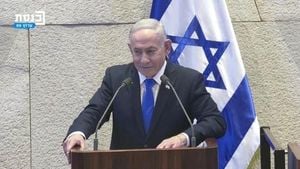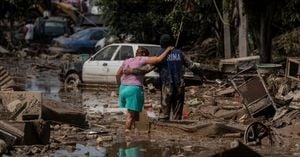On August 25, 2025, the Philippine National Police (PNP) experienced a jolt that few saw coming: President Ferdinand “Bongbong” Marcos Jr. removed General Nicolas Torre III from his post as PNP chief, just 85 days after his swearing-in. Torre’s tenure, the shortest in PNP history, ended almost as abruptly as it began, leaving many in the Philippines’ political and law enforcement circles scrambling for answers and clarity.
Torre’s rise to the top was nothing short of meteoric. According to Rappler, he was a “good soldier” who took on the toughest assignments, including the audacious arrest of former president Rodrigo Duterte and the elusive Kingdom of Jesus Christ leader Apollo Quiboloy. These high-profile operations cemented Torre’s reputation as a decisive and fearless officer. His rapid ascent—from brigadier general to four-star general, and then PNP chief—was a testament to both his capabilities and the trust placed in him by the administration.
But as quickly as the stars aligned for Torre, they just as quickly scattered. The question on everyone’s mind: Why did President Marcos, who had so recently handpicked Torre as a symbol of a performance-driven government, decide to cut him loose?
It all began with a bold vision. Three days after taking the helm, Torre rolled out a five-minute emergency response policy in Metro Manila, requiring police to respond to 911 calls within a mere five minutes. The policy, later extended nationwide, was lauded as ambitious and innovative. Yet, by August 11, Torre acknowledged its limitations, noting that remote areas with sparse personnel would need adjustments. "We have to fine-tune the policy for remote areas," he explained, showing a willingness to adapt grand ideas to on-the-ground realities.
Torre also made a public show of accountability. On June 9, he paid a courtesy visit to the Commission on Human Rights (CHR), affirming the commission’s oversight. "When a victim has their human rights violated by a criminal, the police step in," Torre said during the visit, as reported by Rappler. "But if, for example, the police violate someone’s human rights, then the CHR is there. I do recognize and thank the CHR for keeping us always in check and being a partner of the PNP in ensuring that everything we do is within the ambit of law." This gesture, described as "more than ceremonial" by CHR spokesperson Attorney Beda Epres, was seen as a break from the PNP’s often tense relationship with rights watchdogs.
Public perception of the police improved during Torre’s brief leadership. A July 2025 “Tugon ng Masa” survey by OCTA Research found that trust in the PNP had climbed to 71 percent, up nine points from April. Only five percent of respondents expressed distrust, while 20 percent remained undecided. These numbers suggested that Torre’s reforms, or at least his public image, resonated with ordinary Filipinos.
Yet, Torre’s tenure was not without controversy—or spectacle. In July, acting Davao City Mayor Sebastian “Baste” Duterte challenged Torre to a boxing match on a podcast, criticizing his role in the arrest of the elder Duterte. Torre accepted, proposing that proceeds benefit typhoon victims. The event, which the younger Duterte ultimately skipped, still raised over 20 million pesos in aid. However, Torre’s public training videos and taunts turned what could have been a charitable gesture into something closer to political theater—a move that raised eyebrows in Manila and beyond.
But it was Torre’s handling of internal police appointments that proved to be his undoing. In early August, he reassigned several PNP officials, including Deputy Chief for Administration PLt. Gen. Jose Melencio Nartatez Jr.—a move that did not sit well with the National Police Commission (Napolcom) or Interior Secretary Jonvic Remulla. According to Rappler, Remulla and Napolcom vice chair Ralph Calinisan, both key civilian overseers, saw Torre’s reshuffles as overreach, sparking a power struggle that would ultimately cost Torre his job. Napolcom issued a resolution ordering Torre to reverse the reshuffle, and while Torre claimed on August 18 that the conflict had been “resolved,” he offered no details. A week later, he was out.
The suddenness of Torre’s removal left many speculating about the true motives behind it. Some, as Rappler noted, saw it as a matter of civilian oversight and the need to check police power. Others suspected more personal dynamics at play, pointing to the strained relationship between Torre and Remulla. Still others—those wary of both Marcoses and Dutertes—wondered if Torre was being punished for carrying out politically sensitive arrests or if the president’s promises of a new position were simply a face-saving gesture.
The official line from Malacañang and Interior Secretary Remulla was that Torre would be retained in another, as yet undisclosed, role. "The president believes in his capacity," Remulla told reporters on August 26. But as of August 28, no details had emerged, and some observers questioned whether any concrete offer would materialize. Torre himself, for his part, told reporters he had “no hard feelings” and was considering his future. His four stars remain with him, and unless he retires early, his official retirement date is March 11, 2027.
In the meantime, three-star general Jose Melencio Nartatez Jr.—an Ilocano like President Marcos—has stepped in as officer-in-charge of the PNP. However, due to the rules governing the rank of four-star general, Nartatez must wait until Torre’s retirement or reassignment to assume the full rank and authority.
For those following the ever-shifting landscape of Philippine politics, the Torre saga is a microcosm of larger struggles: between civilian oversight and police autonomy, between political loyalty and professional merit, and between the Marcos and Duterte camps. As Rappler pointed out, the episode unfolded alongside ongoing investigations into flood control projects and other political controversies, a reminder that in the Philippines, headlines shift quickly but the underlying currents of power and intrigue run deep.
Ultimately, Torre’s brief, tumultuous tenure as PNP chief leaves more questions than answers. Was he a casualty of internal politics, a scapegoat for deeper rifts, or simply the wrong man at the wrong time? As the dust settles, Filipinos are left to wonder what comes next—for Torre, for the police force, and for a nation where the line between law enforcement and politics is never quite clear.
![[Rappler Investigates] When Torre’s tower collapsed](https://thumbor.evrimagaci.org/oQzCkwVcBfKVuVkYYYL7BOVT0uk=/200x0/tpg%2Fsources%2F8d81ac9e-8a6f-44ae-af07-aa6cbd3fcc91.jpeg)



